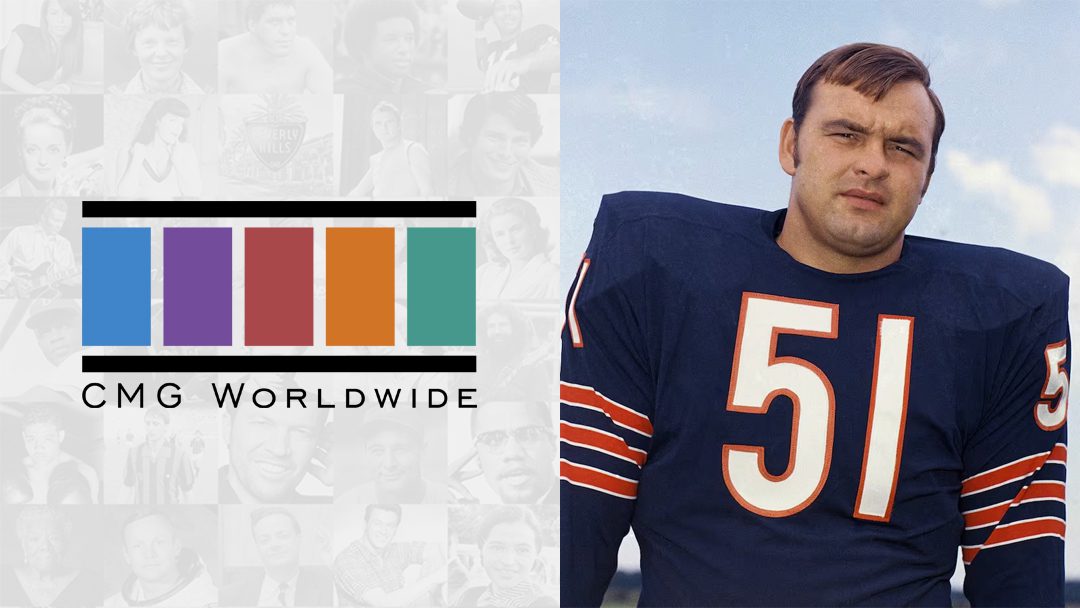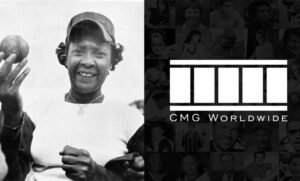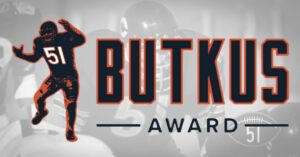CMG Worldwide proudly announces the representation of Dick Butkus.
About Dick Butkus
Dick Butkus was born December 9, 1942, in the Fernwood neighborhood on Chicago’s south side to a blue-collar family of Lithuanian descent. The youngest of nine children, Butkus learned early to compete and work hard for what he wanted and his place in life. By the fifth grade, he had already decided he was going to become a professional football player. In his own words recalling his younger years, Butkus said, “I worked hard at becoming one (football player), just like society says you should. It (society) said you had to be fierce. I was fierce. Tough. I was tough.”Butkus’ ferocious intensity and drive for achievement was first recognized when he attended Chicago Vocational High School. While receiving his education, he rose in the ranks as a star football player. It was during these years where Butkus first developed his skills to strip the ball and pulverize opposing players on the gridiron.
In 1965, Butkus was drafted into the NFL by his home team, the Chicago Bears. With his addition, the Midway had a brand-new lease on their future. Butkus’ years of training in college, combined with years of a powerful work ethic, led to greatness. Debuting in his now iconic jersey “number 51” in the white, burnt orange, and navy blue we all know and love, Butkus recorded 11 solo tackles in his first game. Dick Butkus, as a rookie, made an entrance into the Chicago Bears organization that served as the catalyst for dramatically reversing their fortunes and improving their struggling defense. In his first year, Butkus was a top contender for NFL Rookie of the Year honors, but was edged out by his teammate and fellow first-round draft pick, the spectacular Gale Sayers, who was drafted by the Bears during the same year.
By 1970, injuries started to take a toll on Dick Butkus’ knees. It was during that time that he suffered his first of a series of knee injuries, and as with all athletic injuries of massive proportions, he never fully recovered. Nonetheless, in the last three years of his career, he gave it his all. Butkus played through the pain, registering 117 tackles and 68 assists, recovering three fumbles, and intercepting four passes in 1971 (a testimony to his character, strength, and dedication.) By the time he retired in 1973, Butkus had been named first-team All-NFL for 6 years, and played in 8 consecutive Pro Bowls. His career totals now include 1,020 tackles and 489 assists.




